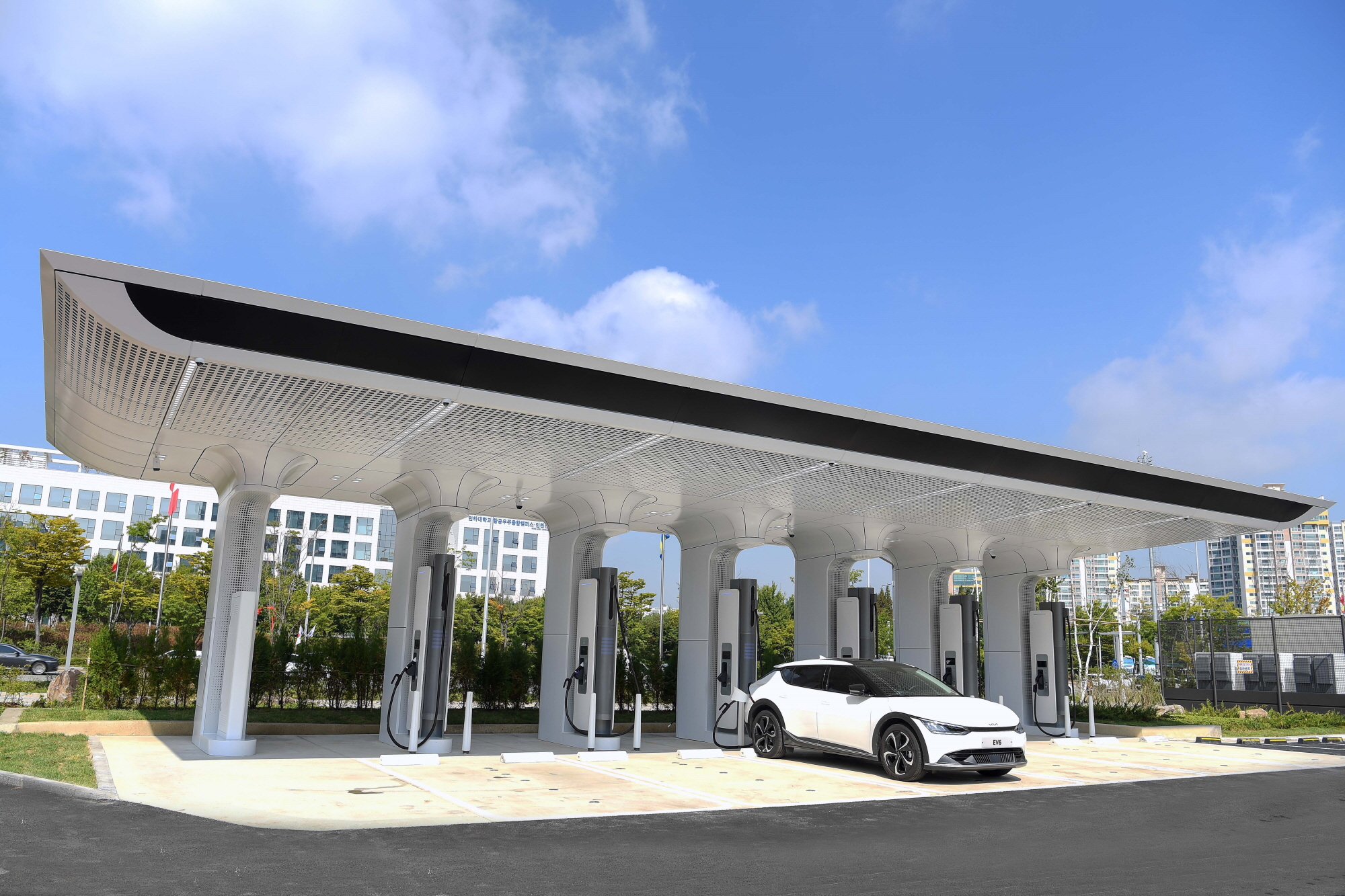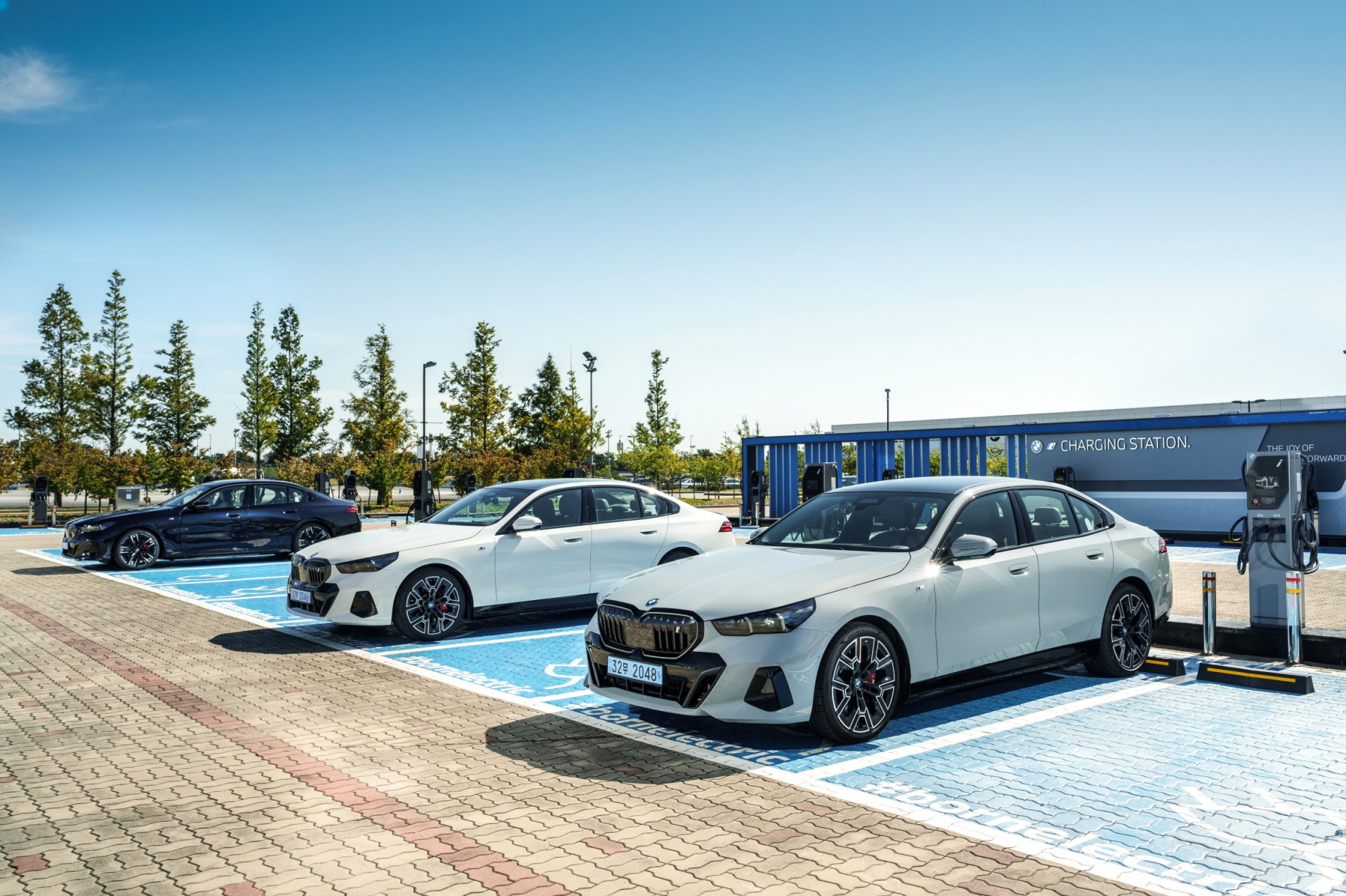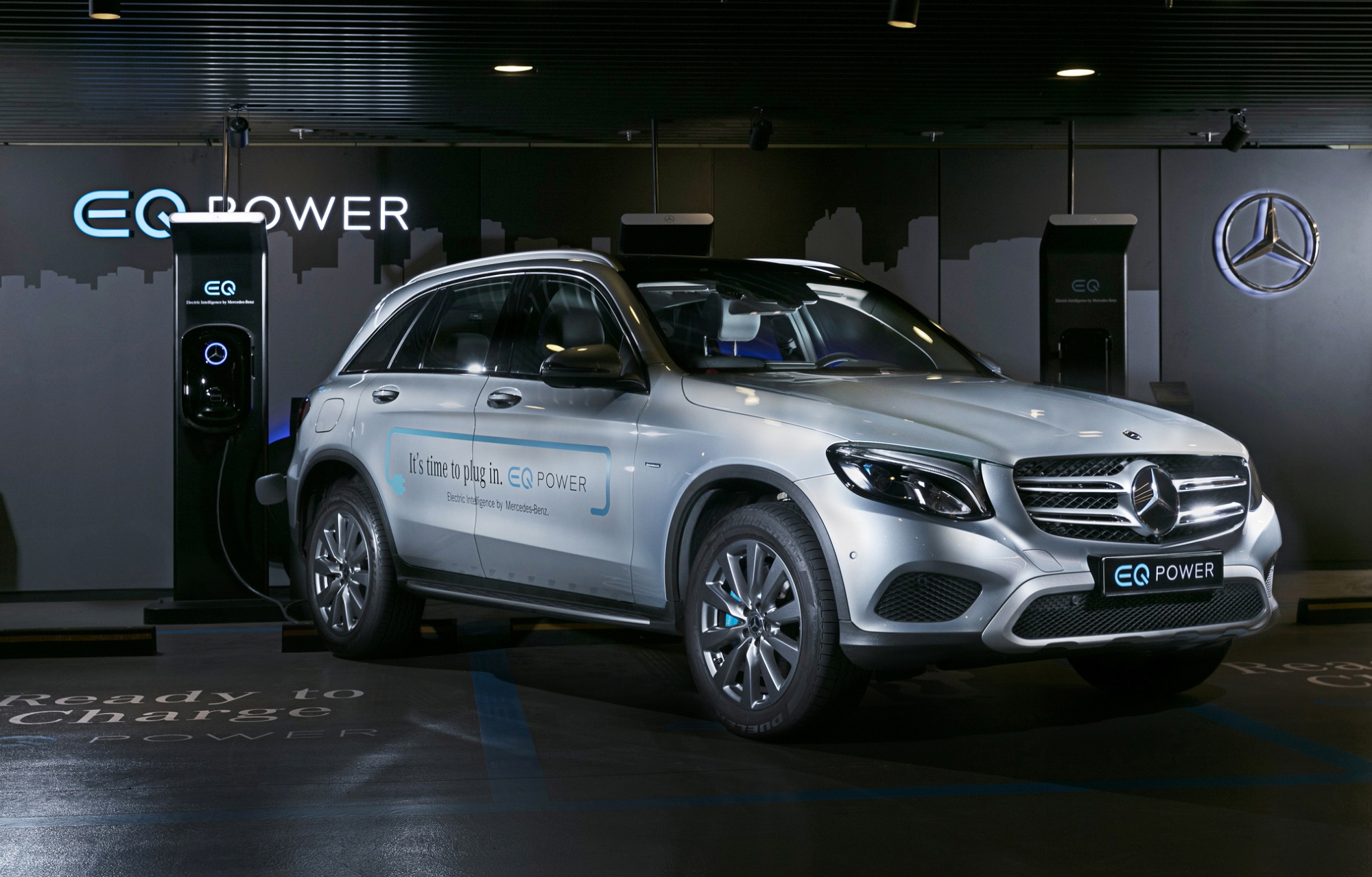
Carbon neutrality. A complex task assigned to all automotive manufacturers. To tackle this challenge, major domestic automotive brands are accelerating the installation of dedicated charging facilities.
When it comes to high-speed charging, Hyundai’s E-Pit stands out. Launched in March 2021 with an 800V ultra-fast charging service, infrastructure has been established in key locations across highways and urban areas nationwide.
Currently, E-Pits have been installed at 17 major highway rest areas and 35 city locations, making a total of 52 places nationwide. Furthermore, an additional E-Pit will be added this year, making it a total of 53 operational locations.

BMW Korea has installed a total of 1,119 dedicated chargers as of last year. This year, they plan to add another 1,000 charging stations to ensure that BMW electric vehicle customers can charge conveniently anywhere in the country.
Mercedes-Benz Korea is also fully engaged in reducing its carbon footprint by installing EQ chargers across the country. Currently, Benz Korea has installed a total of 370 dedicated chargers at showrooms, service centers, and major hub facilities like Starbucks branches along the Bukhan River, greatly enhancing convenience for EQ customers.
However, the efforts don’t stop there. Mercedes-Benz plans to start installing a 350KW ultra-fast charger at the exclusive Maybach center opening this year and aims to have a total of 150 dedicated EQ chargers, including 25 ultra-fast chargers, by the end of 2025.
As major brands focus on eliminating their carbon footprints, the impact of electric vehicle charger installations on the increasing sales of electric vehicles is garnering attention from all.

Lee Sang-Jin daedusj@autodiary.kr

